Education
Contribution
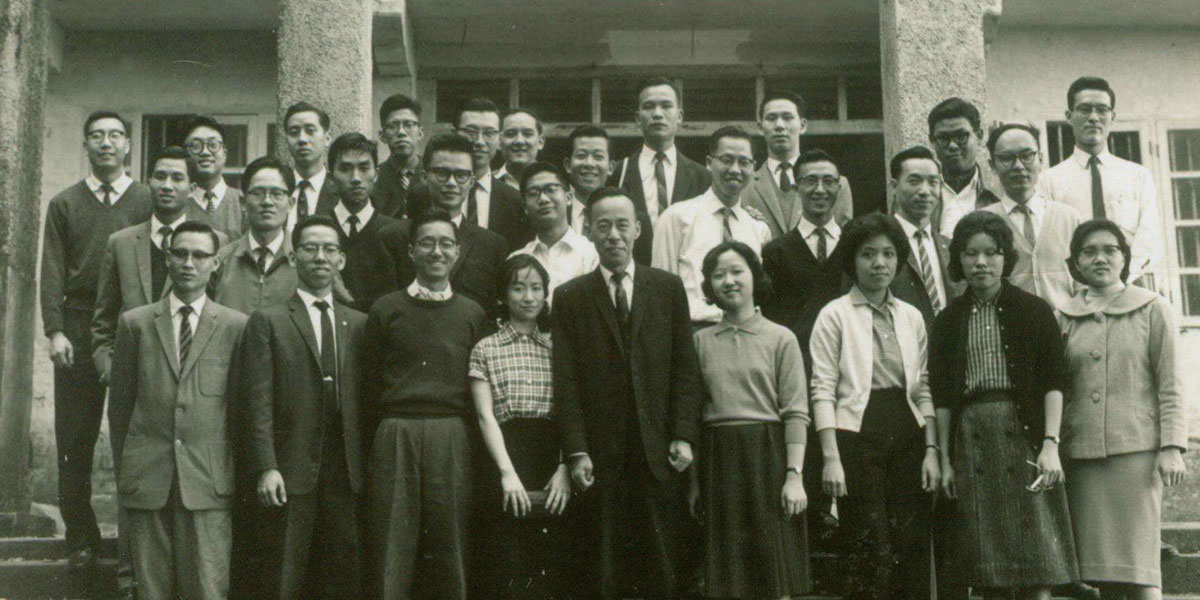
When he was not yet twenty years old, Professor Jao taught the Chinese language in Hanshan Normal University as a substitute teacher when he was appointed by Zhan Antai in 1935. Soon afterwards he was employed as an editor on arts and literature at the History Compilation Bureau of Sun Yat-sen University in Guangdong province, with prominent scholars such as Wen Tingjing, Mao Heting and Xian Yuqing as his colleagues. From 1939 to 1941, Professor Jao was appointed as a research fellow at Sun Yat-sen University. At that time Sun Yat-sen University moved to Yunnan Province in response to the Japanese occupation. On the way to his post, Professor Jao was detained in Hong Kong because of sudden sickness. From 1943 to 1945, Professor Jao was appointed as professor at the Wuxi Sinology Academy in Guangxi; in 1946 as a professor in Guangdong University of Arts and Science; in 1947 as professor and department head in the department of Chinese literature and history, Nanhua University. From 1952 to 1968 Professor Jao taught at the Chinese University of Hong Kong, serving successively as the lecturer, senior lecturer and professor. The topics of his lectures covered the Shijing, Daoism, Chuci, and early medieval poetry and literary criticism. From 1968 to 1973, Professor Jao was appointed as Chair Professor and Department Head in the Department of Chinese at the National University of Singapore. From 1970 to 1971, he was invited as a visiting professor at Yale University. From 1972 to 1973 he served as a Research Professor in the Institute of History and Philology, Academia Sinica, Taiwan. From 1973 to 1978, he went back to the Chinese University of Hong Kong and served as a chair professor and department head. From 1978 to 1979, he was a guest professor in the Department of Religious Sciences at the École Pratique des Hautes Études. Later on, he was appointed as professor in the Institute for Research in Humanities, Kyoto University, for five months. From 1981 to 1988 he trained students in Chinese traditional culture at the East Asia University, Macao. After that, he taught at the department of Arts, CUHK, and the same time he also continued research at the Institute of Chinese studies, CUHK.
To sum up, Professor Jao had been occupied in teaching for over 70 years and has had students all over the world. He could be fairly called a great master of education and an inspiring model as a teacher.
Since he has lived primarily in Hong Kong and Macao, Professor Jao’s unique influence on the local development of culture and academia is highly noteworthy.
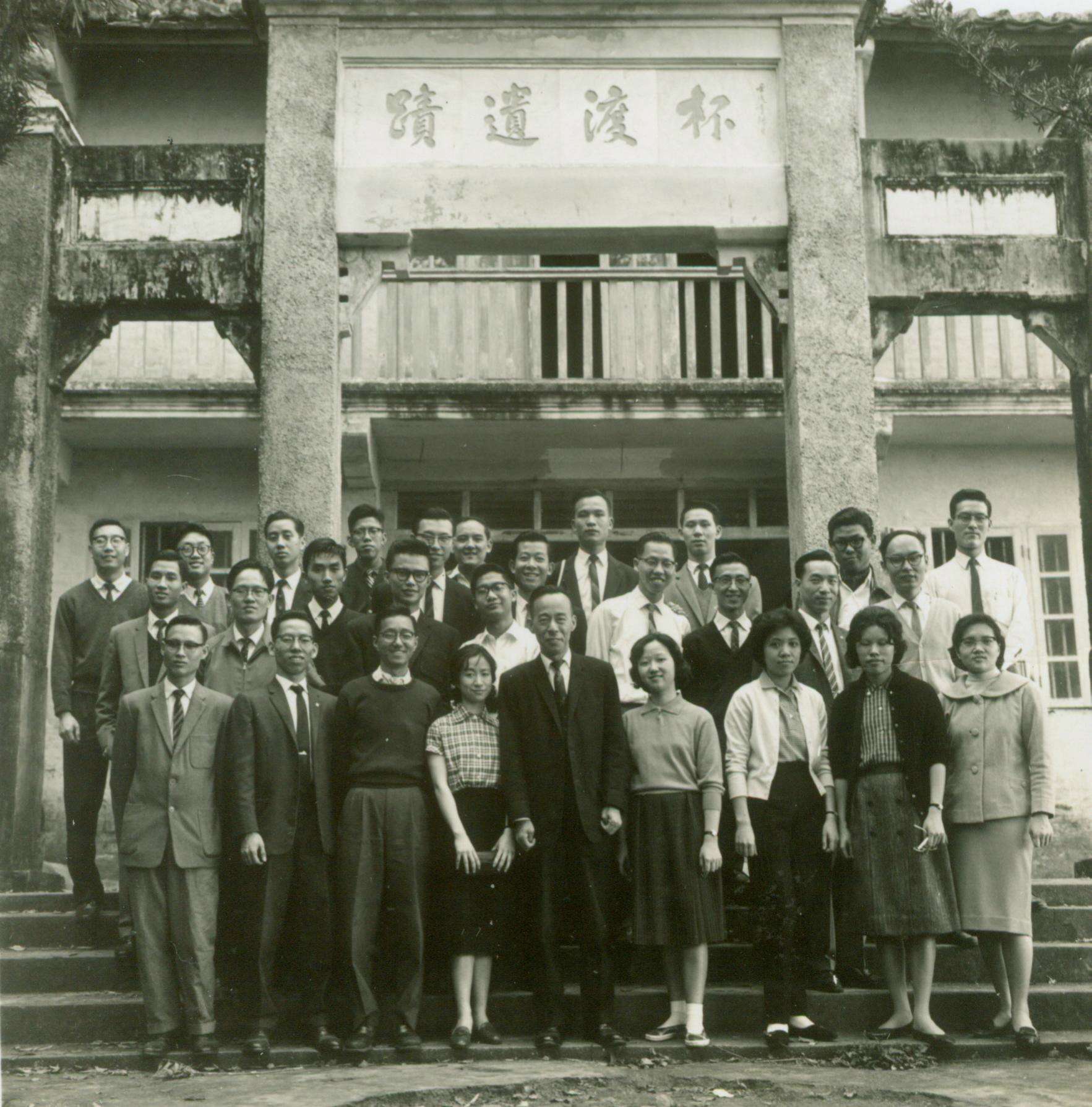
Professor Jao among the students from the Department of Chinese at HKU at the site of the monk Pui To’s monastery at Tsing Shan (1960s)
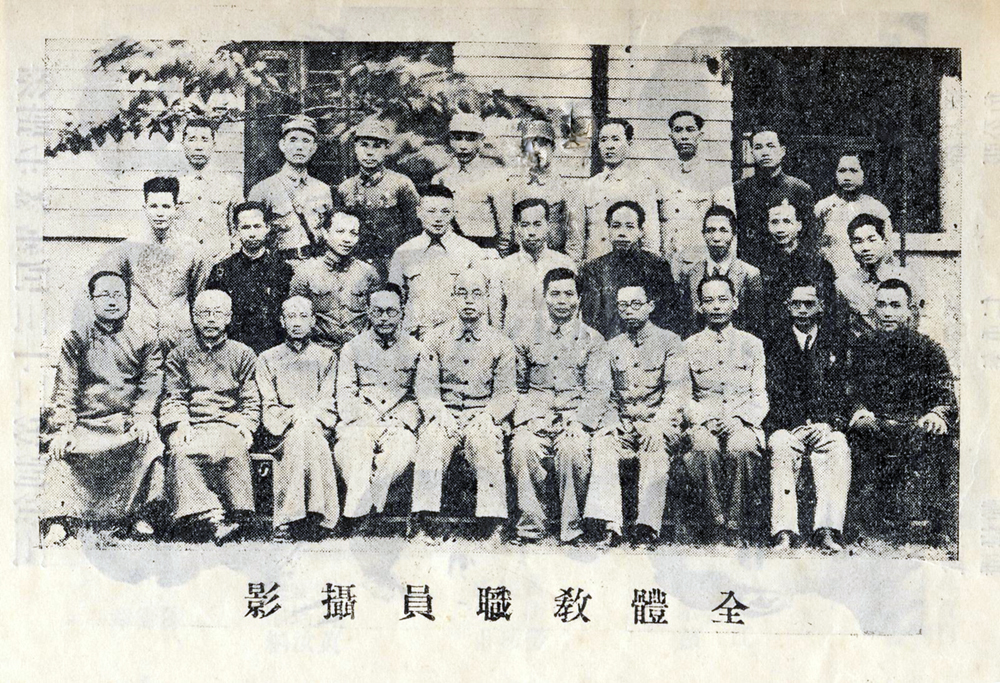
The Teaching Staff of the Wuxi Institute of Chinese Studies
During the Sino-Japanese War, the Wuxi Institute of Chinese Studies moved to Guilin, Guangxi Province. In 1943, Professor Jao was appointed as a professor at the institute, a position he held until the end of the war in 1945. This photo is from the 1944 yearbook of the Institute, with Professor Jao standing in the centre of the second row.
Image courtesy of Soochow University Archives
(The second row from the right is Professor Rao, 1944)
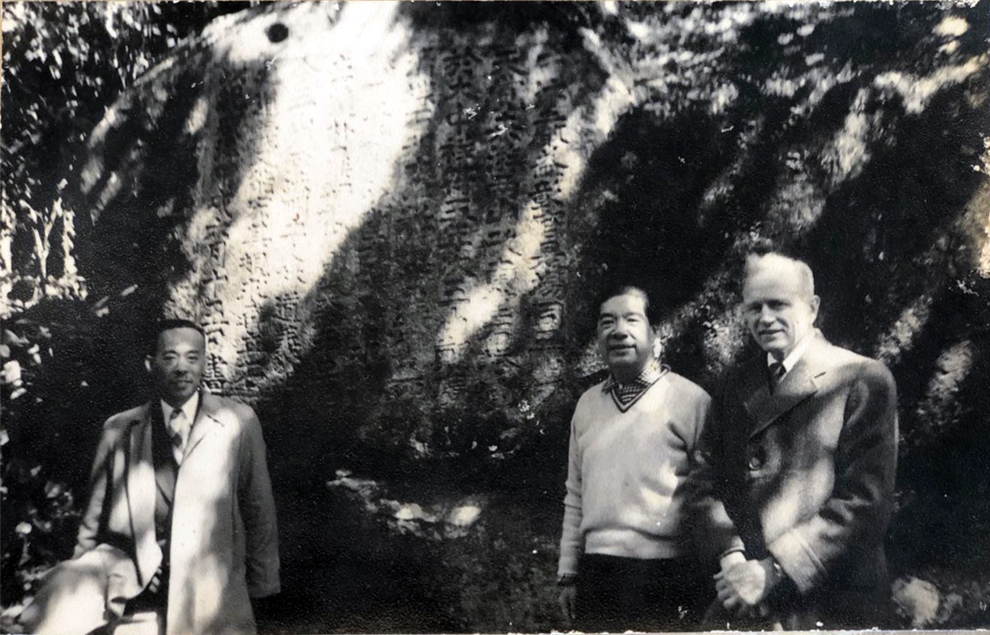
The Opening Up of a New Realm of Academia
In his years of teaching at The University of Hong Kong, Professor Jao Tsung-i further expanded his academic perspective and delved into other research areas, from the study of ci poetry to Selections of Refined Literature, oracle-bone studies and palaeography, the ancient anthology Songs of Chu, prehistoric palaeogeography, bibliography and comparative study of editions of ancient books. In the meantime, he conducted researches on Dunhuang-related topics, bamboo and silk manuscripts and the history of the East-West cultural exchange. He became the forerunner of many research topics in these fields. His publications during his tenure at the University included 16 books and about 120 papers on various subjects. His notable works include A Collation and Annotation on the Dunhuang Manuscript ‘Laozi Xiang Er Zhu’, Oracle Bone Diviners of the Yin Dynasty and Studies on Ci Publications.
*Professor Jao(right), Professor Jian Youwen (middle) and Professor F. S. Drake at Joss House Bay, 1950s
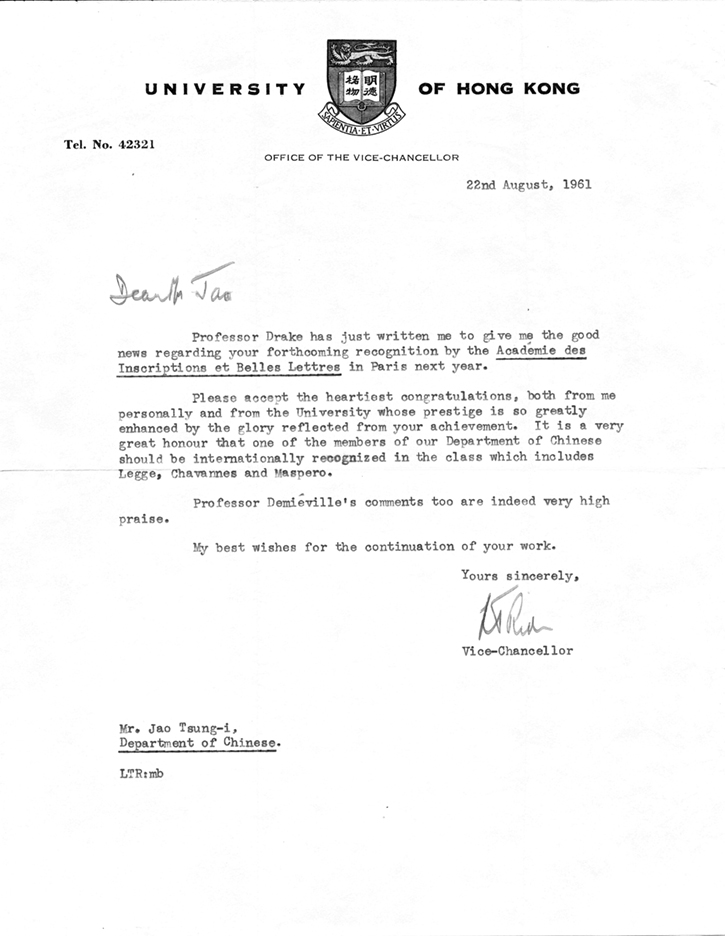
Congratulatory Letter from Sir Lindsay Ride, the then Vice Chancellor of The University of Hong Kong
1961
A letter was written by Sir Lindsay Ride (1898-1977) to congratulate Professor Jao on being awarded the Prix Stanislas Julien by Institut de France. He also praised his tremendous contributions to The University of Hong Kong. The previous prize winners include James Legge (1815-1897), Édouard Chavannes (1865-1918) and Henri Maspero (1883-1945).
Collection of Jao Tsung I Foundation
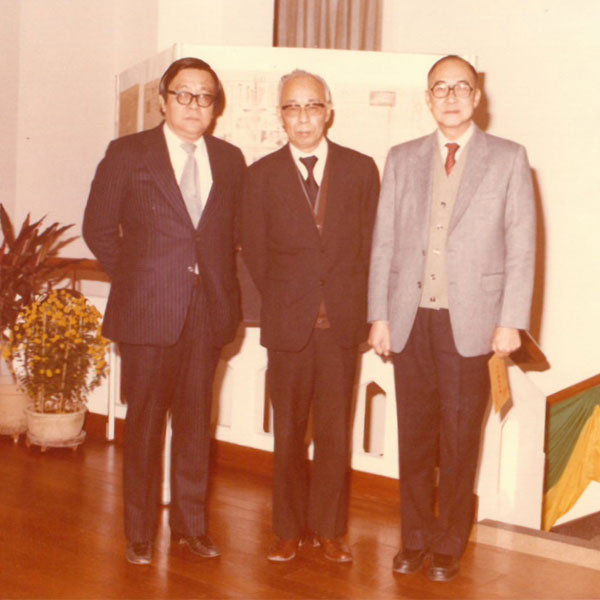
Professor Jao with Professor Chiu Ling-yeong and Professor Lo Hong-lit from the School of Chinese, HKU (January 1983)
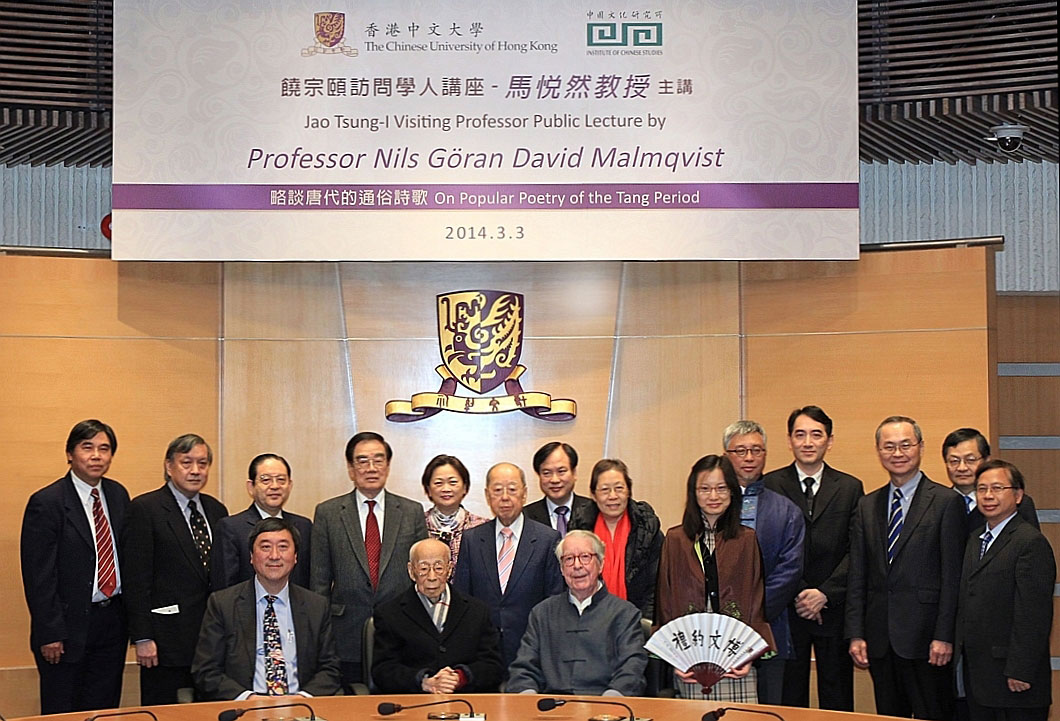
Professor Nils Göran David Malmqvist speaking at the first “Jao Tsung-I Visiting Professorship” (3rd March 2014)
